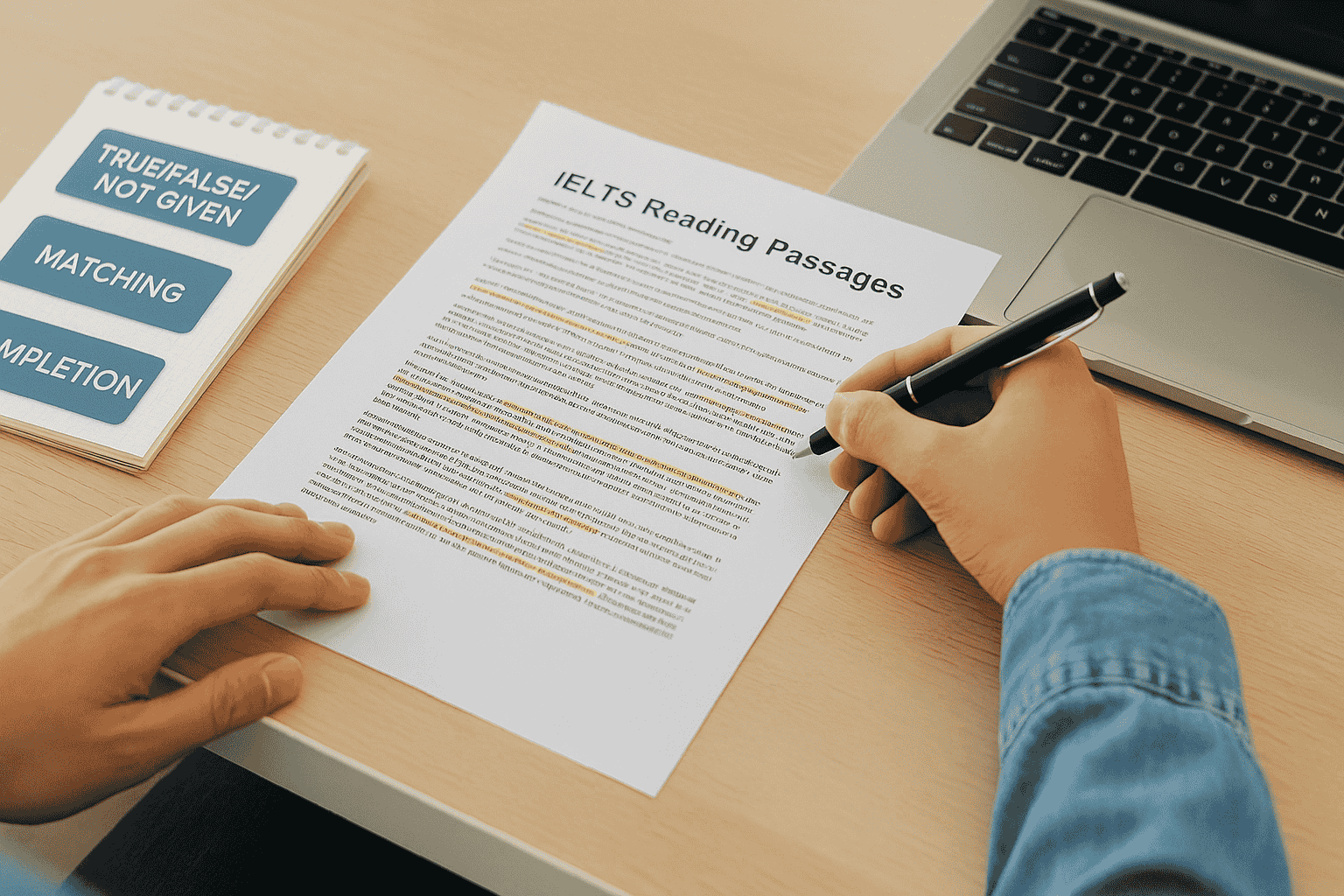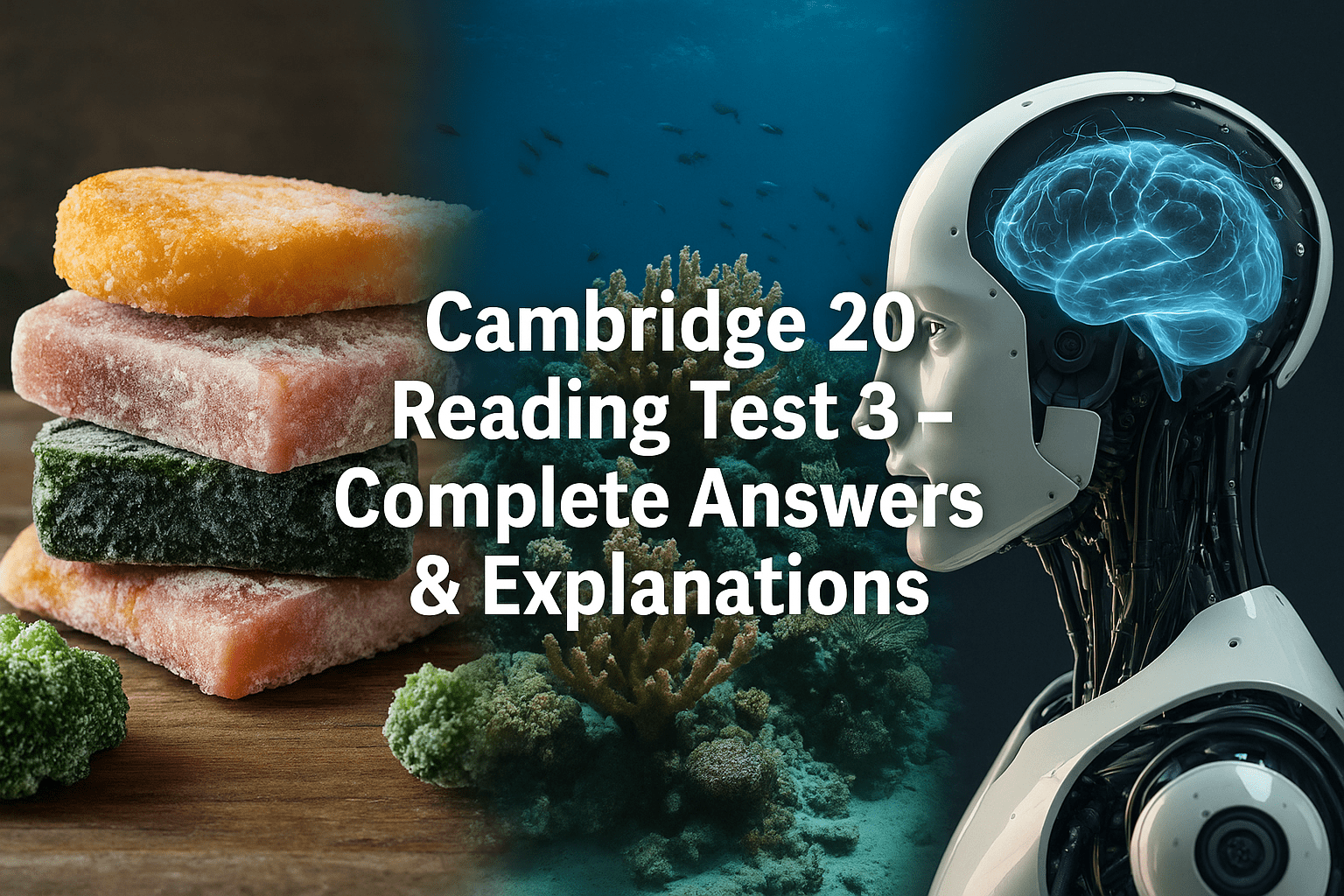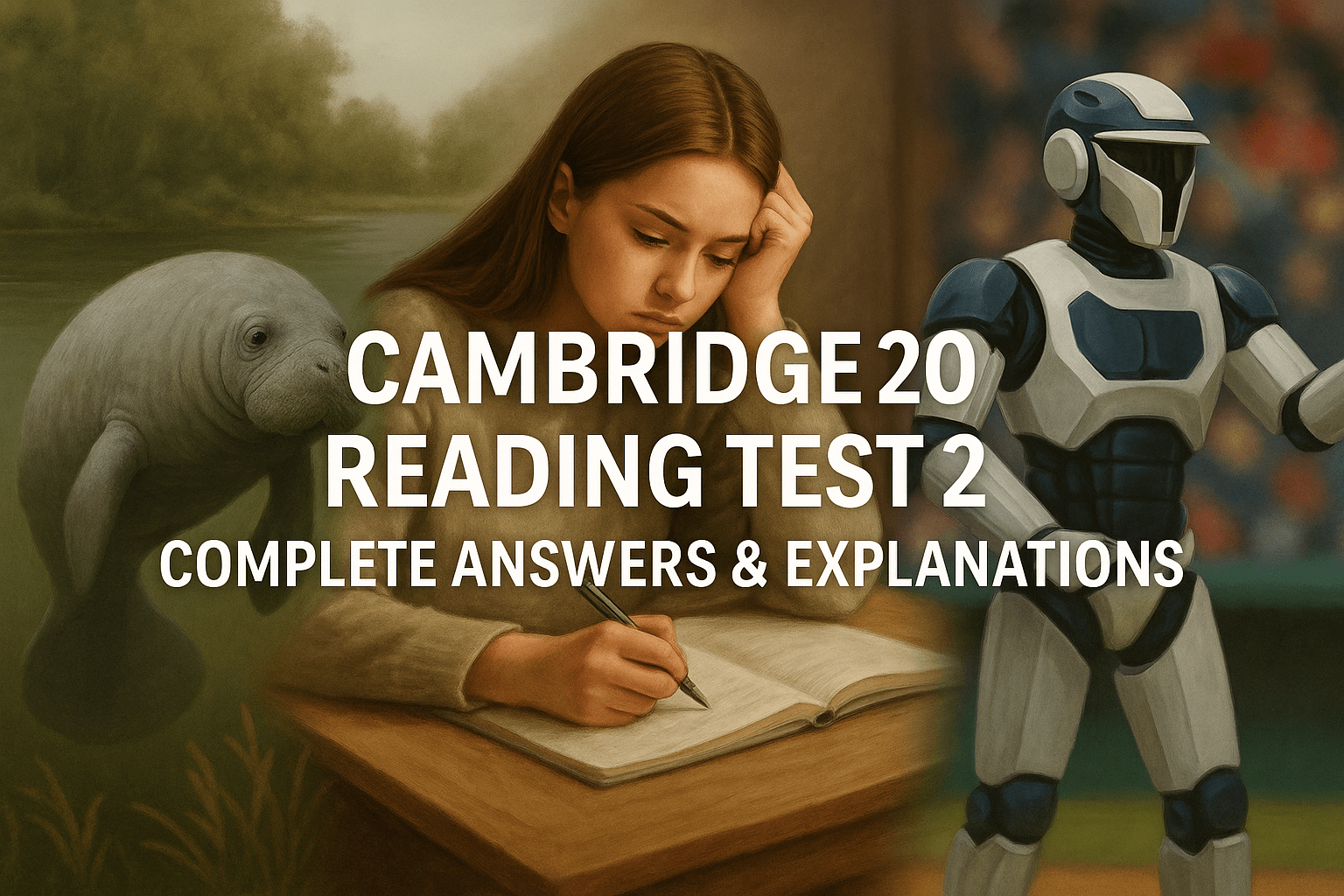If you want to score Band 7–9 in IELTS Reading, understanding IELTS reading vocabulary for each question type is a game-changer.
As a global IELTS teacher, I’ve seen many students read entire passages quickly but still struggle to find the answers. The reason is simple: IELTS questions are built on synonyms and paraphrases. Knowing the keywords and vocabulary patterns for each question type will help you recognize answers faster and avoid traps.
In this guide, I’ll share:
- The main IELTS Reading question types that rely heavily on vocabulary
- Common keywords and phrases that appear in each type
- Tips for using synonyms and avoiding mistakes
- Links to my IELTS Reading Vocabulary for deeper learning
Why Learn IELTS Reading Vocabulary by Question Type?
IELTS Reading is not just about understanding English — it’s about understanding the exam’s logic.
Here’s why focusing on vocabulary by question type is powerful:
- Each question type uses predictable language
- True/False/Not Given (T/F/NG) loves facts, negations, and absolute terms like always, never, completely.
- Matching Headings often includes abstract nouns like development, process, influence.
- Sentence Completion favors specific detail words like dates, measurements, causes.
- Synonyms Appear More Than the Original Word
- If the passage says: “Children prefer outdoor games.”
- The question may ask: “Children favour outdoor activities.”
- It Saves Time and Improves Accuracy
Recognizing keyword patterns and paraphrasing allows you to scan, match, and answer confidently without rereading every line.
IELTS Reading Vocabulary for True/False/Not Given (T/F/NG)
This question type tests your ability to identify facts and opinions in the passage. To master it, you must spot keywords and their synonyms, especially for affirmation, negation, and uncertainty.
Common Vocabulary Patterns
- Affirmative / Positive Words
- Always, definitely, clearly, certain, confirmed, universally, in fact
- Negative Words
- Never, no, none, fail to, reject, exclude, without
- Qualifiers (Partial Truths or NG traps)
- Some, often, may, can, usually, suggest, indicate, possible
Example in IELTS context:
- Passage: “Researchers believe that some species can survive extreme conditions.”
- Question: “All species survive extreme conditions.” → False (all ≠ some).
Tip: Watch for absolute words (always, never, all, completely). If the passage uses a weaker qualifier, the answer may be False or Not Given.
IELTS Reading Vocabulary for Matching Questions
Matching questions include:
- Matching Headings
- Matching Information
- Matching Features
- Matching Sentence Endings
Here, IELTS reading vocabulary focuses on paraphrasing and abstract ideas rather than direct detail.
Common Vocabulary Themes for Matching Headings
- Processes & Changes
- Development, transformation, progress, shift, adaptation
- Causes & Effects
- Result, outcome, influence, consequence, impact
- Comparison & Contrast
- However, whereas, on the other hand, similar, different
- Opinion or Argument Indicators
- Advocate, suggest, propose, believe, argue, challenge
Example in IELTS context:
- Heading: “The Impact of Tourism on Local Culture”
- Passage line: “Increased tourism has significantly influenced traditional festivals.”
- Key vocabulary match: Impact → influenced.
Pro Tip: Look for topic sentences and abstract nouns. Headings often paraphrase the main idea, not the exact words.
IELTS Reading Vocabulary for Completion Questions
Completion tasks include:
- Sentence Completion
- Summary Completion
- Table/Note Completion
Here, precision vocabulary matters because the correct word must fit grammatically and logically.
Common Vocabulary for Completion Tasks
- Cause & Effect Language
- Lead to, due to, because of, result in, arise from
- Measurement & Quantity Words
- Percentage, proportion, rate, number, volume, amount
- Time & Sequence Words
- Initially, subsequently, finally, during, prior to, following
- Specific Descriptive Words
- Massive, minimal, artificial, natural, complex, efficient
Example in IELTS context:
- Sentence: “The study concluded that ______ rainfall caused flooding in the region.”
- Passage: “Heavy rainfall led to widespread flooding.” → Answer: heavy
Tip: Learn common academic adjectives and nouns that describe quantities, conditions, and effects. They frequently appear in completion tasks.
3 Steps to Apply Vocabulary by Question Type
As a teacher, I always recommend this 3-step method to my students worldwide:
- Underline Question Keywords
- Highlight nouns, verbs, or adjectives that are likely to be paraphrased.
- Scan for Synonyms in the Passage
- Match meaning, not exact words. Example: discover → find → detect.
- Confirm Grammar & Logic
- Especially in completion tasks, make sure your word fits the sentence grammatically.
Linking Vocabulary to Real Practice
Learning IELTS reading vocabulary by question type works best when combined with real practice tests and thematic study.
Here’s how I guide my students:
- Start with Question-Type Analysis
- Focus on one type for a week: T/F/NG, Matching, or Completion.
- Create a Vocabulary Bank
- Collect synonyms and patterns from each passage you practice.
- Review with Official Materials
- Use reliable sources like:
For a structured learning path, explore my IELTS Reading Vocabulary, which links to 10 supporting blogs, including 50 Must-Know Synonyms and Theme-Based Vocabulary Guides.
Final Thoughts
Mastering IELTS reading vocabulary by question type is like having a roadmap for the exam.
- For T/F/NG, focus on negatives, absolutes, and qualifiers.
- For Matching, train with abstract nouns and paraphrased ideas.
- For Completion, sharpen precision vocabulary and academic word use.
If you integrate these words into your daily reading and combine them with Cambridge practice, your accuracy and speed will improve, moving you closer to Band 7–9.
✅ Pro Tip: Study one question type each week and build a synonym list from real passages. By test day, you’ll recognize patterns instantly, giving you a major scoring advantage.






One Response
There are certainly numerous details like that to take into consideration. That may be a nice level to carry up. I supply the thoughts above as normal inspiration however clearly there are questions like the one you deliver up the place crucial factor might be working in trustworthy good faith. I don?t know if best practices have emerged round things like that, but I am positive that your job is clearly identified as a good game. Each boys and girls feel the influence of just a second’s pleasure, for the remainder of their lives.